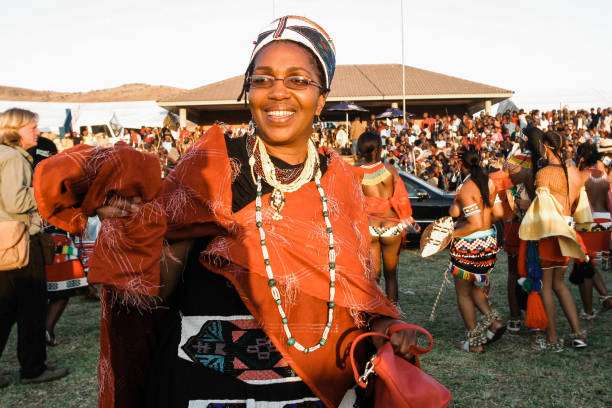South African music is a vibrant and diverse genre that has captured the attention of music lovers worldwide. The country’s rich history, cultural heritage, and social struggles have all influenced its music scene, resulting in a unique sound reflecting its identity. This article will look closely at South African music, exploring its history, styles, and influences.
The Roots of South African Music

South African music is a genre that has evolved over centuries and is deeply rooted in the country’s history. The region’s indigenous music dates back to the early Bantu migrations, and traditional African music has significantly shaped the country’s musical identity.
The Influence of Apartheid
The apartheid era was a significant influence on South African music. During this time, the government enforced strict segregation laws that separated whites and non-whites. Music became a powerful tool for resistance and protest against the oppressive regime. Artists used their music to express their discontent with the government and advocate for social change. One of the most significant genres of music during this period was “township music,” which emerged from the townships designated for non-white residents.
The Rise of Jazz
In the 1960s, South African jazz gained popularity, with musicians like Hugh Masekela and Miriam Makeba achieving international recognition for their music that reflected the social issues of the time. The jazz scene in South Africa was characterized by a fusion of traditional African rhythms with Western instrumentation, resulting in a unique sound that reflected the country’s identity.
Styles of South African Music
South African music is a diverse genre, encompassing various styles and influences. Traditional African music is an essential component of the country’s musical heritage, and different types, such as maskandi, mbaqanga, and kwela, continue to be popular today.
Maskandi
Maskandi is a traditional Zulu style of music that originated in the rural areas of KwaZulu-Natal. A guitar, concertina, and a distinctive vocal style characterize it. The lyrics often reflect the daily struggles of rural life, such as poverty and unemployment. Maskandi has a loyal following and is popular among the Zulu-speaking population of South Africa.
Mbaqanga
Mbaqanga is another traditional style of music that emerged in the townships in the 1960s. It is a fusion of traditional African rhythms, jazz, and Western instrumentation. A strong bass line and a call-and-response vocal style characterize Mbaqanga. It has a unique sound reflects the country’s history and cultural heritage.
Kwela
Kwela is a style of music that originated in the townships in the 1950s. It is characterized by the use of penny whistles and a catchy melody. Kwela was often performed on street corners and became an essential part of the township culture. The genre was popular among the youth and significantly influenced South African music’s development.
Contemporary South African Music
In addition to traditional African music, South African music has been influenced by various Western styles such as rock, hip-hop, and house music. South African musicians have incorporated these influences into their music, creating a unique fusion of sounds that reflects the country’s identity.
Amapiano – The New Fuzz
One of South African music’s newest and most popular genres is Amapiano, a trap and kwaito music fusion. The genre emerged in 2019 and has filled the void left by the disappearance of Kwaito in the 2000s. Amapiano is popular among the youth and currently produces some of the
most chart-topping songs in South Africa, dominating the top 200 Shazam songs in the country.
Amapiano’s unique sound combines deep house and jazz with African rhythms and percussion. The genre has significantly influenced the South African music scene and has gained global recognition. Some prominent Amapiano artists include Kabza De Small, DJ Maphorisa, and Vigro Deep.
The Global Impact of South African Music
In recent years, South African music has gained significant recognition on the international stage, with artists like Black Coffee, Sho Madjozi, and Master KG achieving global success. Black Coffee has performed at some of the biggest music festivals in the world, including Coachella and Tomorrowland. Sho Madjozi won the 2019 BET Award for Best New International Act, and her hit song “John Cena” became a viral sensation. Master KG’s global hit “Jerusalema” became an anthem during the COVID-19 pandemic, with people worldwide participating in the #JerusalemaChallenge.
South African music has also been the subject of academic study and research, with scholars exploring the genre’s historical and cultural significance. For example, the University of KwaZulu-Natal offers a musicology program that includes courses on South African music. The University of Cape Town also has a strong music department, focusing on ethnomusicology and African music.
Supporting South African Music
Despite its global success, South African music still faces challenges. Many local musicians struggle to make a living from their art, with limited government and music industry support. In recent years, there has been a movement to promote and support local music, with initiatives like the South African Music Awards and the Music In Africa Foundation.
As a music lover, you can also support South African music by attending local concerts, buying music from local artists, and streaming South African music on platforms like Spotify and Apple Music. By supporting South African music, you are enjoying the rich and diverse sounds of the genre and contributing to the growth and sustainability of the country’s music scene.

Getty Images
South African music is a genre that is rich in history, culture, and diversity. Its unique sound reflects the country’s identity, shaped by its past, present, and future. South African music has come a long way, from the townships to the global stage, and its influence will continue to be felt for generations. It is a genre worth exploring, celebrating, and supporting, as it represents the best of what South Africa has to offer to the world. Whether you are a fan of traditional African rhythms or contemporary beats, South African music has something for everyone.







